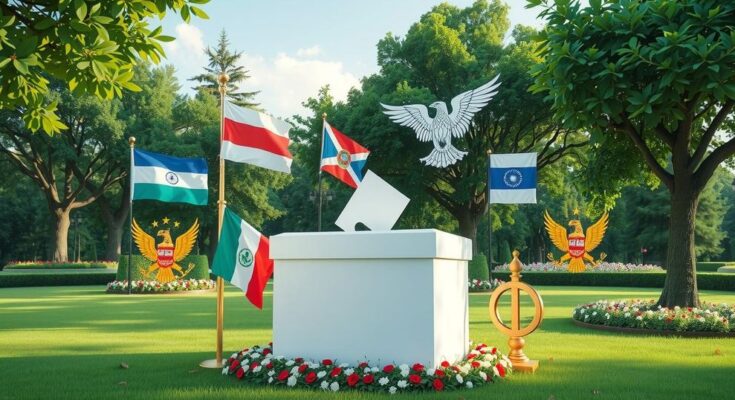Voting for the 39th World Zionist Congress opened on March 10, offering American Jews a vital chance to influence Israel’s future amidst a defining ideological battle between liberal and right-wing factions. With over $5 billion in funding at stake and authority over key organizations, the election occurs between March 10 and May 4, 2024. 152 seats are available to American Jewry, alongside representatives from the global Diaspora and Israel, focusing on various ideological approaches relevant to contemporary Jewish identity and statehood.
Voting commenced on March 10 for the 39th World Zionist Congress (WZC), offering American Jews an opportunity to influence Israel’s future. This election is pivotal, as it holds significance for over $5 billion in Jewish funding and control of key institutions like the Jewish Agency, instrumental in Israeli immigration, and the Jewish National Fund, which owns a substantial portion of Israeli land.
Eligible participants include any Jewish adult residing in the United States who adheres to specific Zionist principles and pays a $5 registration fee. The voting period extends until May 4, leading to a significant ideological confrontation between liberal and right-wing Orthodox factions, crucial to framing the direction of Zionist institutions, especially concerning religious pluralism, funding for Jewish education, and settlement policies.
Rabbi Josh Weinberg, leader of the Reform movement’s slate, emphasized, “This election is about nothing less than the soul of the State of Israel and the Jewish people.” The distinction between competing visions of Jewish identity and statehood underscores the importance of this election, as voters can play a decisive role through this democratic process.
For this election, American Jewry is allocated 152 seats, an increase from the last election’s 15 slates. Newly elected representatives will join 173 members from the global Diaspora and 200 from Israel, selected based on the proportions of seats held in its parliament.
There are 21 slates for voters to consider. Noteworthily, Achdut Israel was founded post the Hamas attack on October 7, advocating for support of Israeli troops. The AID Coalition emerged as a pro-democracy slate opposing the current Israeli government, linking their platform to recent social movements. Aish Ha’am promotes Orthodox unity and pro-Israel advocacy through its platform.
The American Forum for Israel represents pro-settlement principles, while Am Yisrael Chai targets younger demographics with a focus on Jewish pride. ANU, a left-leaning slate, promotes non-partisan values and a two-state solution. Other notable slates include Beyachad, representing Russian-speaking Jews, Dorshei Torah V’Tzion for liberal Orthodoxy, and Eretz Hakodesh, which advocates for traditional values.
Hatikvah focuses on democratic rights and settlement opposition, Herut promotes unapologetic Zionism, and Israel365 Action supports exclusive Israeli control. Among others, the Jewish Future and Kol Israel emphasize ties between the Diaspora and Israel, while Mercaz reflects Conservative values.
Mizrachi and Shas Olami represent the Orthodox demographic while Vision stands for right-wing views opposed to the two-state solution. Vote Reform, a robust left-wing slate, has a prominent historical significance after winning the previous election with 25% of the vote. The ZOA Coalition negatively frames Palestinian statehood while emphasizing Jewish rights in contentious areas.
Eretz Hakodesh and Mizrachi’s successes reshaped the congress dynamics, leading to a right-wing majority for the first time. While US Jews tend to align left, low voter turnout threatens representation within the congress due to the small percentage of Jews who engage in the electoral process. Recent election cycles saw participation rates of only around 125,000 from nearly 6 million American Jewish adults.
Yizhar Hess, the World Zionist Organization’s vice chairman, expressed concerns over the low turnout, stating, “If the congress is called ‘the parliament of the Jewish people,’ it should reflect the makeup of world Jewry.” He aims to raise awareness and encourage participation in the upcoming months to enhance pluralism within Zionist governance.
The commencement of the 39th World Zionist Congress election presents a significant opportunity for American Jews to influence critical aspects of Israel’s future, with an appealing financial and ideological contest between liberal and orthodox factions. Given the importance of this election, low voter turnout remains a crucial challenge that may undermine the representation of the diverse Jewish community globally. Commitment toward increasing awareness and participation in this election will enhance the democratic process and the vitality of Zionism in contemporary society.
Original Source: www.jpost.com




